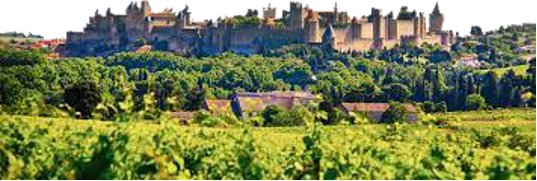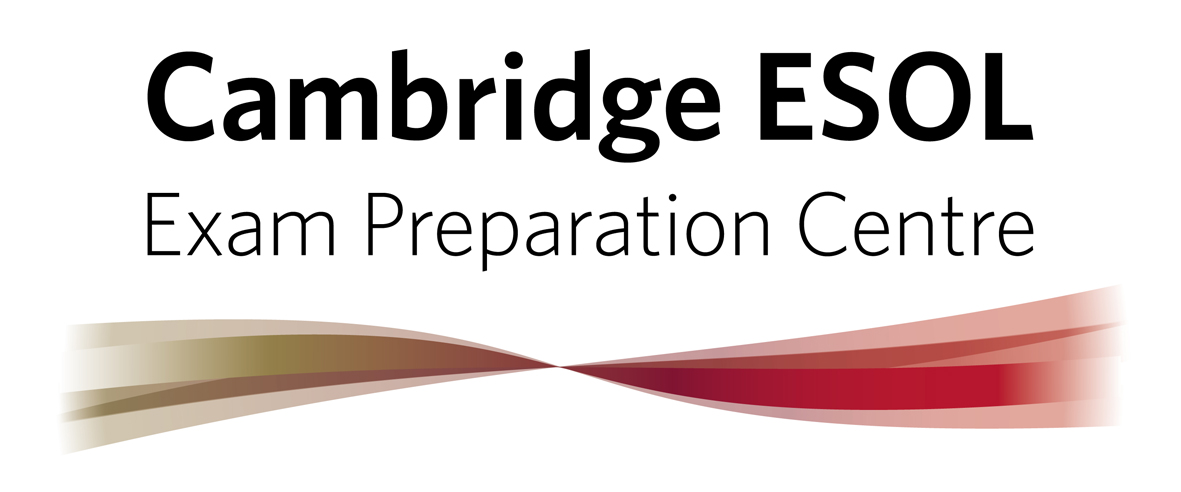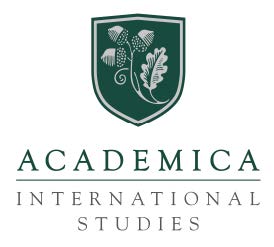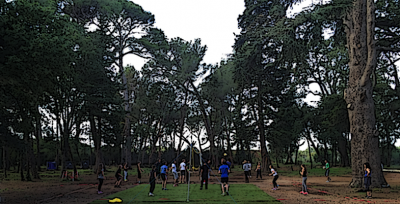
Depending on the curriculum of each class, EPBI offers many different scholastic activities on top of regular classroom such as golf, Sport and Physical Education, Quidditch, Artistic expression, Art…
Cycle 1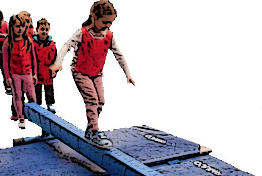
Sport in cycle 1 has 4 essential objectives for a child:
- Moving in space and on objects
- Adapting movement to various situations
- Communicating with others through activities and artistic expression Working together, cooperating, and defending in order to set up real strategies.
These specific physical activities suitable for 3-5 year olds contribute to the motor, sensory, emotional and intellectual development of the child. It is an opportunity to explore, to express oneself, to act in a familiar environment, then gradually do the same in a less familiar environment. Psychomotricity allows you to locate yourself in space.
Sport and Physical Education is taught by a qualified sports teacher.
Cycle 2 / Cycle 3 / Cycle 4
This programme is part of the common foundation of knowledge, skills and culture. Sport and PE programmes aim to acquire five main skills:
- develop motor skills and learn to express yourself using your body
- appropriate methods and tools, through physical and sports practice
- share rules, take on roles and responsibilities,
- learn to maintain your health through regular physical activity
- acquire physical, sporting and artistic knowledge.
Golf for CM1/CM2 – 6ème – 5ème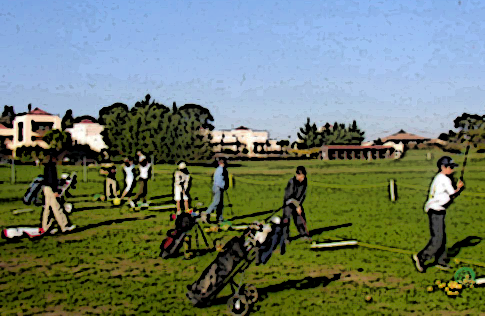
The aim of the introductory golf sessions is to make students independent on a golf course and a driving range.
We also aim to teach the rules and regulations as well as the specific vocabulary of the game so each stage of the game of golf can be differentiated.
Rules must be respected in order to learn safely and in harmony with the other learners and their environment.
This activity tries to combine rules of the game and performance:
- to develop autonomy and enjoyment for golf
- to grow technically, physically, mentally and strategically
- to be able to observe and analyse different situations in the game
- to learn to concentrate, stay attentive and manage one’s emotions
- to acquire basic techniques for the routine of the game (assessing information, making a decision, practising a swing, aiming with the final shot for the hole).
There is a test at the end of each term which allows the golf instructors to assess their pupils’ practical and listening skills, progress and technical skills.
Art classes from CP to CM2
 All primary school children have one art class a week on a chosen theme.
All primary school children have one art class a week on a chosen theme.
Our pupils discover different artists by observing their artwork and then trying to recreate these various artworks (paintings, sculptures, assemblages …).
Individually or in groups, pupils reproduce the artwork through copying the famous artist using various materials such as paper, plastic, wood, metal or textiles.
Art classes give the opportunity to each child to express their artistic nature and creative skills, to build their confidence and to flourish by finishing a piece of artwork.
Sensory perception and artistic expression in the Kindergarten
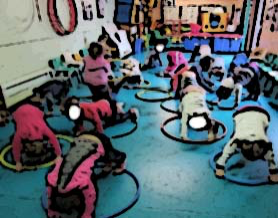
Children in TPS/PS, MS and GS classes of Kindergarten have body language expression classes once a week.
During the school year, they discover a different theme every term to exploit and develop their sensory and artistic perception through dance, music, theatre, relaxation, circus activities and team games.
The workshops also allow the children to discover the world outside their classroom –sports field, park, art classroom.
Children learn self-expression skills and develop their creativity around particular themes such as colours, emotions, animals, seasons, the 5 senses, all through fun and creative learning.
Spanish from CP to CM2
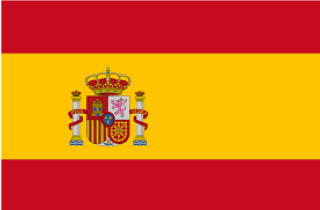 All students in Primary have one hour of Spanish lessons a week.
All students in Primary have one hour of Spanish lessons a week.
Lessons are organised according to age-appropriate learning activties to work on vocab, pronunciation and listening skills.
Different themes are studied to discover new vocabulary such as school, days of the week, months of the year, numbers, colours, animals, the family, food and clothes.
For the CM classes, grammar, conjugations and Spanish civilization are covered.
Both fun and artistic activities are integrated into lessons to help promote the language learning process.
Educational Fieldtrips or Visits
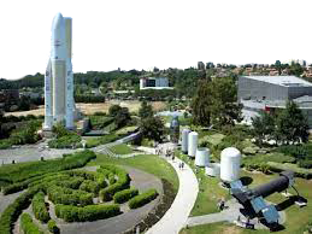 In connection with the themes studied during the year (annual theme in Kindergarten, History, Geography, Science, PE, etc. in Elementary), we organise various educational activities.
In connection with the themes studied during the year (annual theme in Kindergarten, History, Geography, Science, PE, etc. in Elementary), we organise various educational activities.
Within EPBI, depending on the educational project, we invite professionals to our classrooms to give presentations, and to lead discovery and experimentation workshops (storytelling, circus acts, food-tasting, festivals or shows, eco-citizenship course, etc.).Outdoor fieldtrips bring learning to life, as they give our pupils the opportunity to experience many discoveries and experiences on topics previously worked on during the year in the classroom.
These one-off events give meaning to learning, enrich our students’ general knowledge and create deeper pupil-teacher connections.
